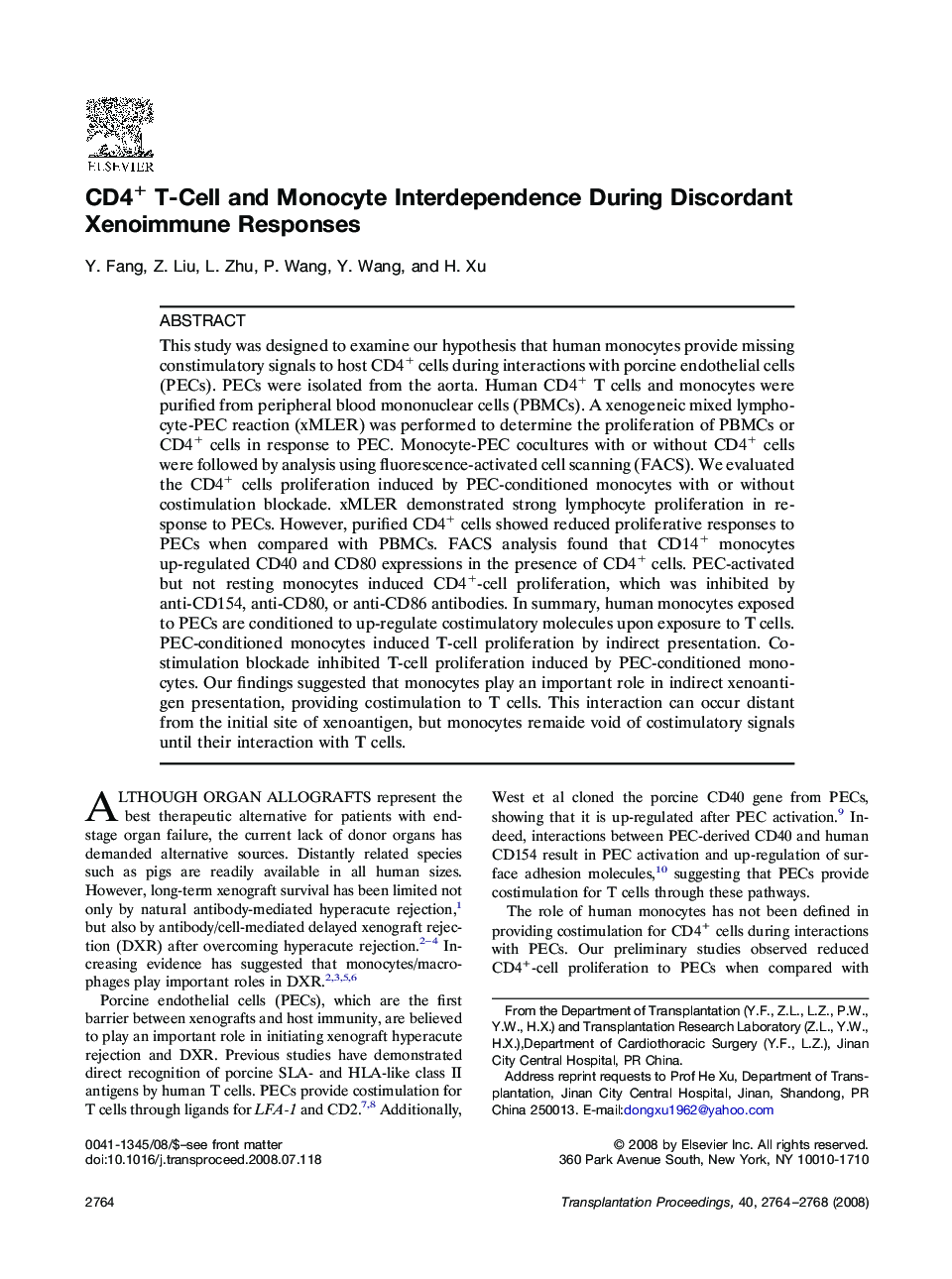| Article ID | Journal | Published Year | Pages | File Type |
|---|---|---|---|---|
| 4262052 | Transplantation Proceedings | 2008 | 5 Pages |
Abstract
This study was designed to examine our hypothesis that human monocytes provide missing constimulatory signals to host CD4+ cells during interactions with porcine endothelial cells (PECs). PECs were isolated from the aorta. Human CD4+ T cells and monocytes were purified from peripheral blood mononuclear cells (PBMCs). A xenogeneic mixed lymphocyte-PEC reaction (xMLER) was performed to determine the proliferation of PBMCs or CD4+ cells in response to PEC. Monocyte-PEC cocultures with or without CD4+ cells were followed by analysis using fluorescence-activated cell scanning (FACS). We evaluated the CD4+ cells proliferation induced by PEC-conditioned monocytes with or without costimulation blockade. xMLER demonstrated strong lymphocyte proliferation in response to PECs. However, purified CD4+ cells showed reduced proliferative responses to PECs when compared with PBMCs. FACS analysis found that CD14+ monocytes up-regulated CD40 and CD80 expressions in the presence of CD4+ cells. PEC-activated but not resting monocytes induced CD4+-cell proliferation, which was inhibited by anti-CD154, anti-CD80, or anti-CD86 antibodies. In summary, human monocytes exposed to PECs are conditioned to up-regulate costimulatory molecules upon exposure to T cells. PEC-conditioned monocytes induced T-cell proliferation by indirect presentation. Costimulation blockade inhibited T-cell proliferation induced by PEC-conditioned monocytes. Our findings suggested that monocytes play an important role in indirect xenoantigen presentation, providing costimulation to T cells. This interaction can occur distant from the initial site of xenoantigen, but monocytes remaide void of costimulatory signals until their interaction with T cells.
Related Topics
Health Sciences
Medicine and Dentistry
Surgery
Authors
Y. Fang, Z. Liu, L. Zhu, P. Wang, Y. Wang, H. Xu,
